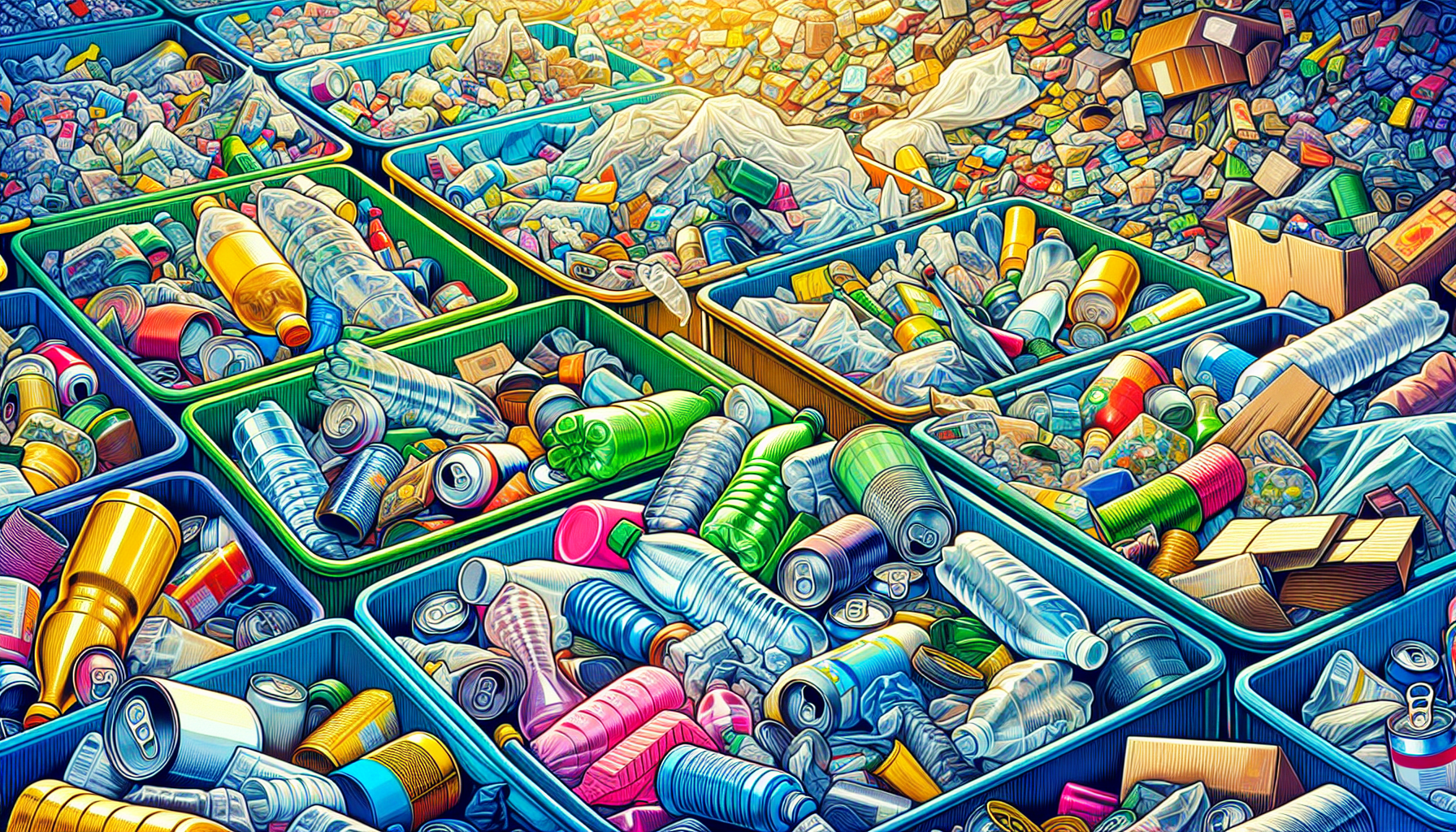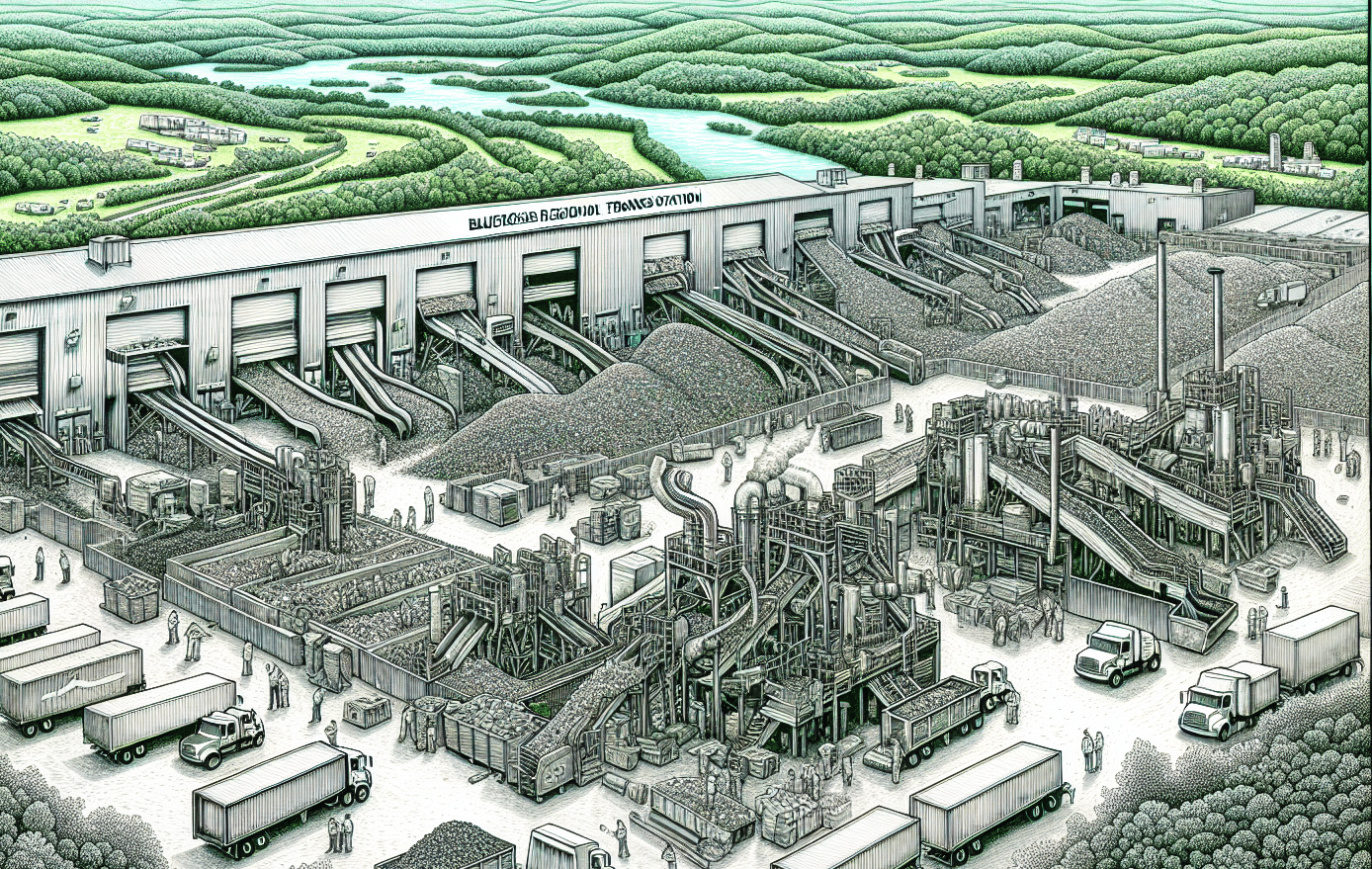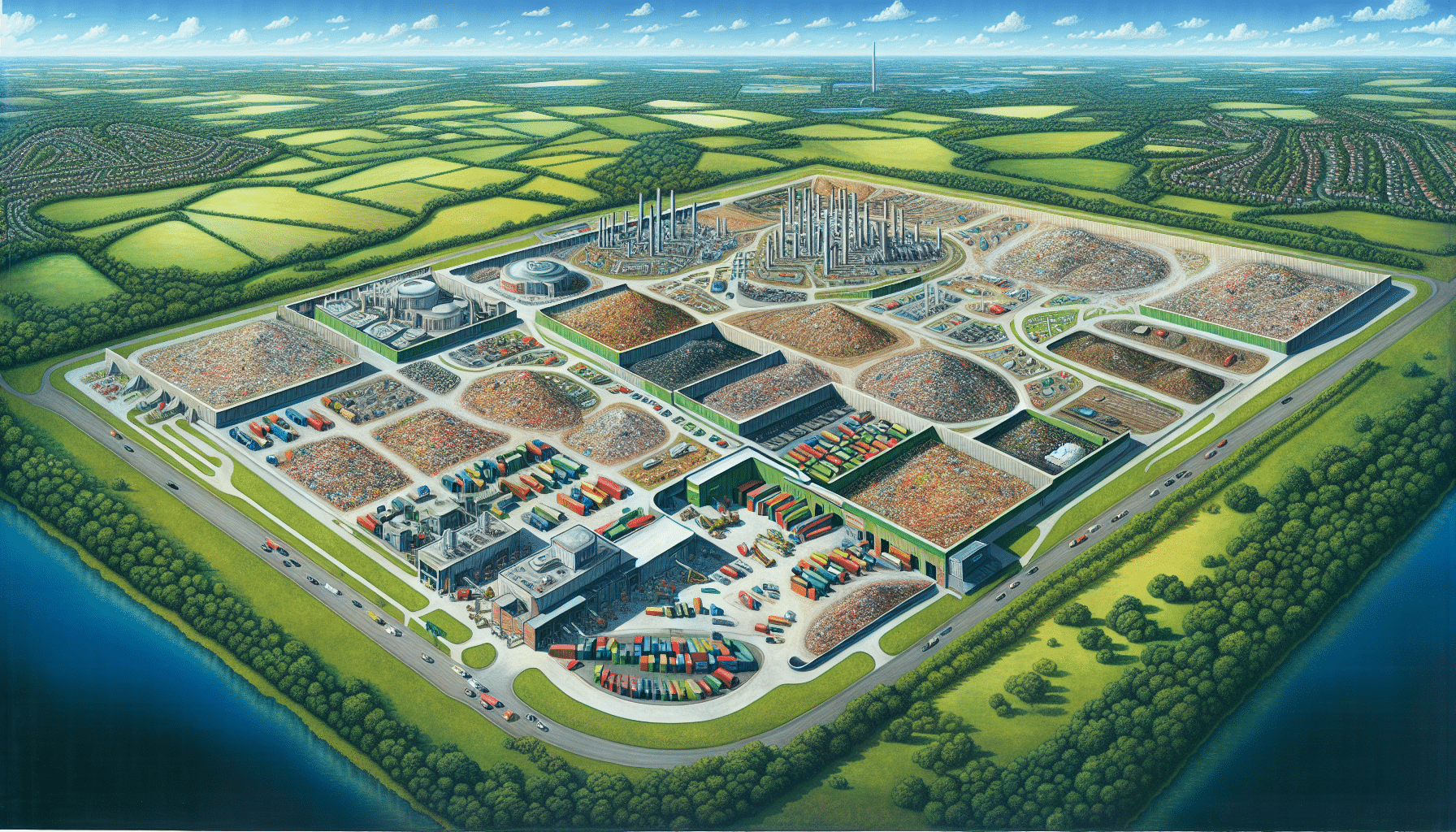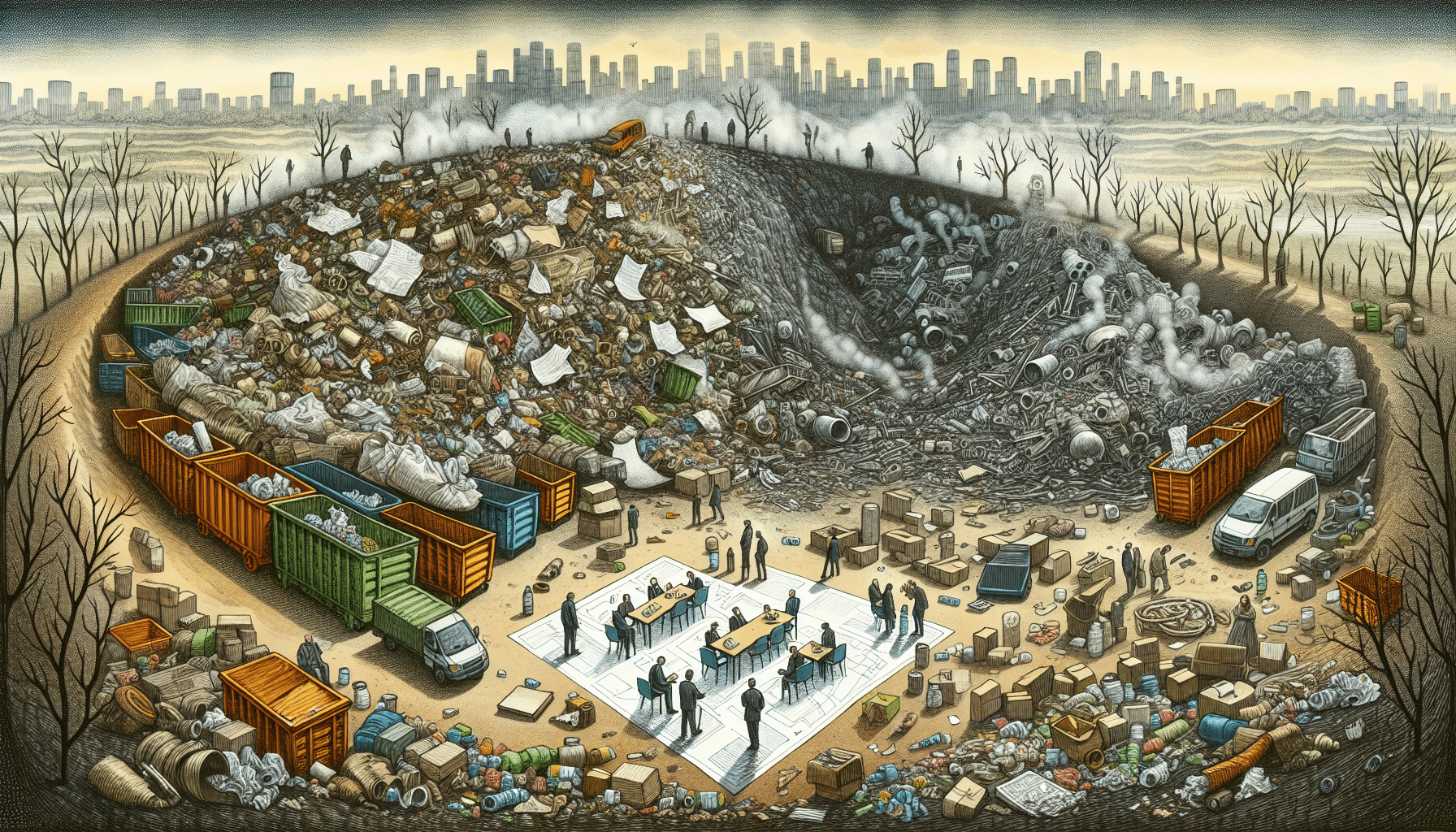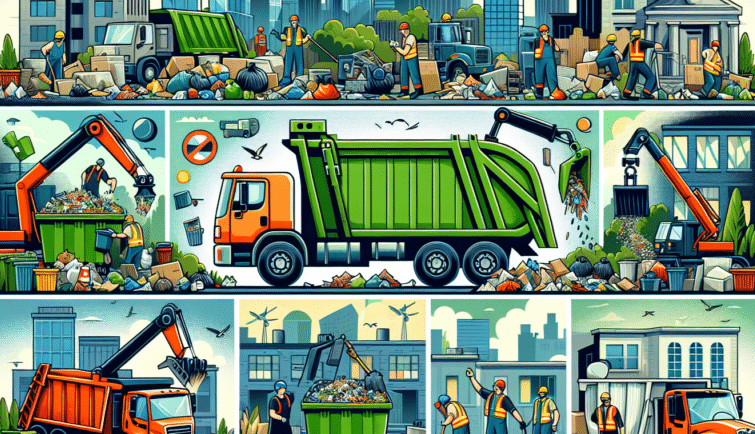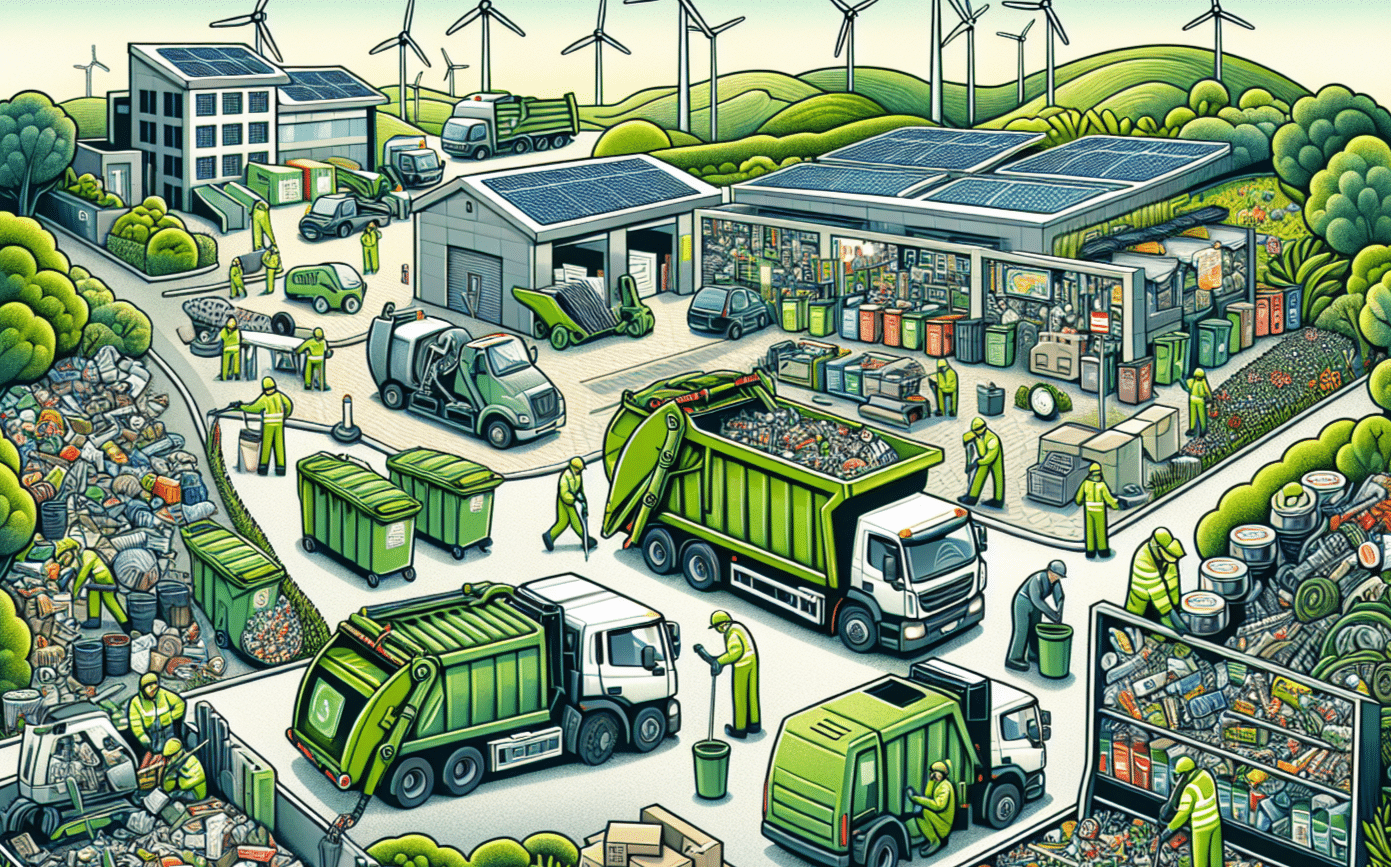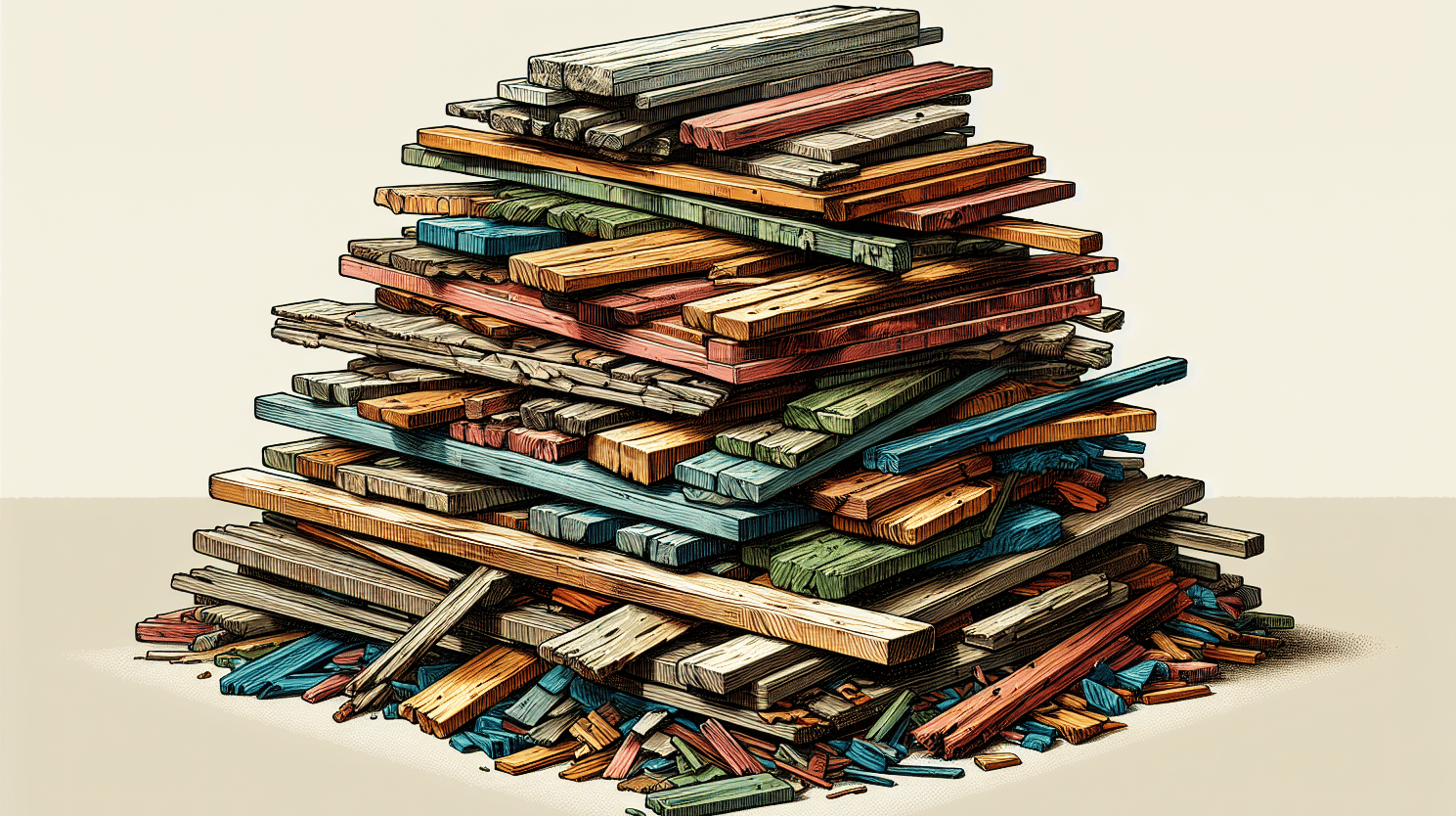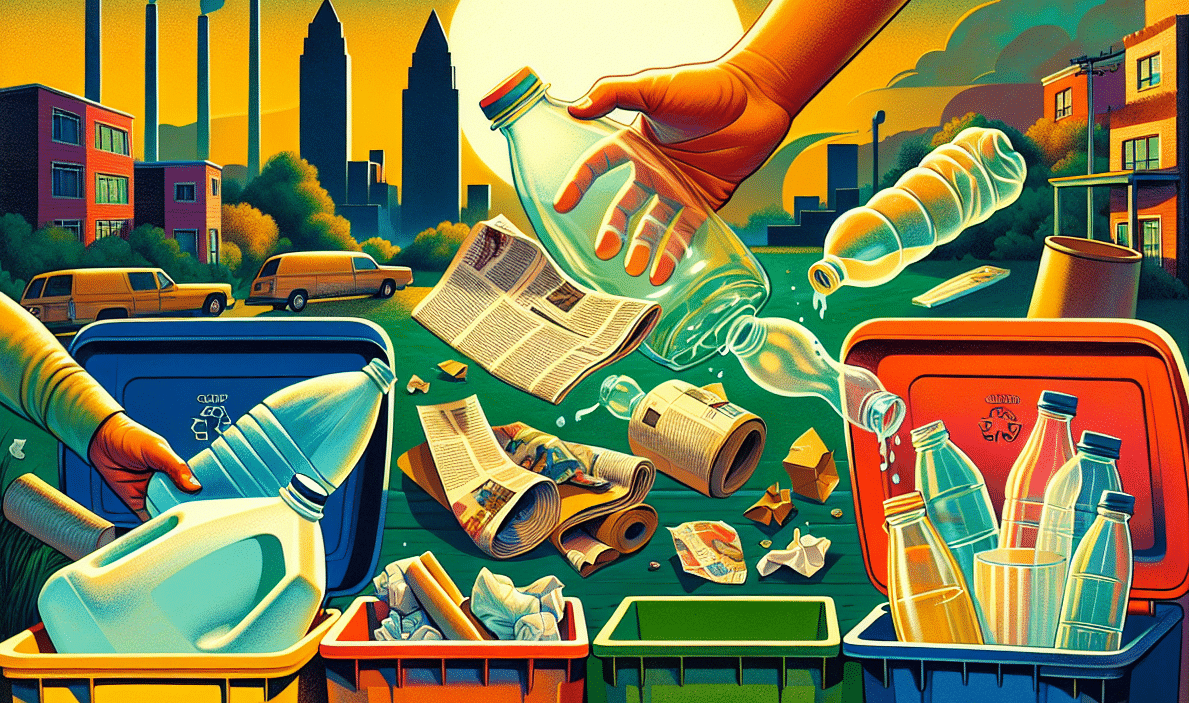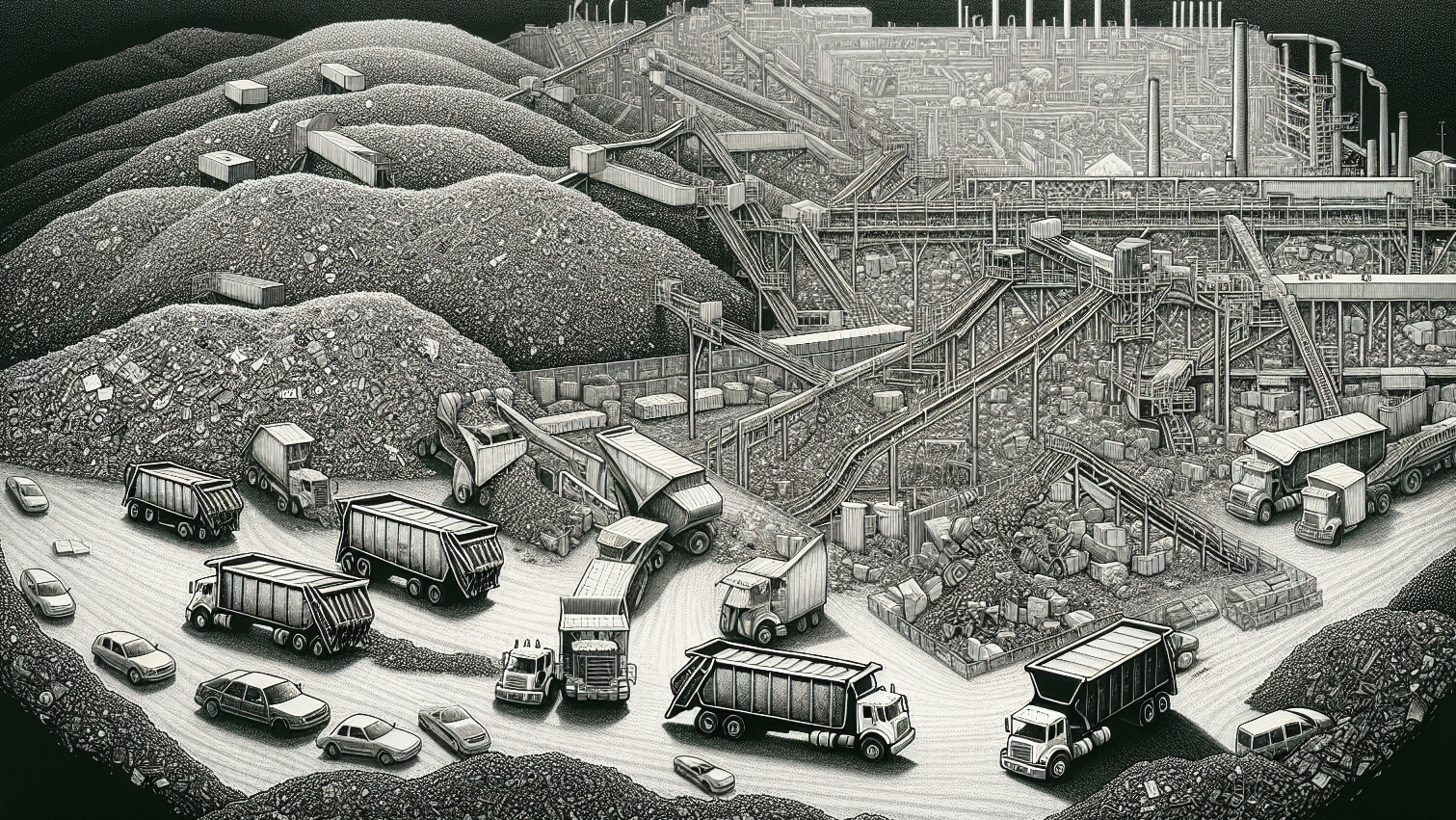Need to compost yard waste or recycle items in Charlotte, NC? Discover hours, accepted materials, and how the Compost Central Recycling Center epitomizes sustainability in waste management.
Key Takeaways
- Compost Central Recycling Center in Mecklenburg County exemplifies a shift from waste disposal to resource recovery, converting 150,000 tons of yard waste into mulch and compost annually and offering free compost to residents.
- The center accepts a range of recyclable materials and operates full-service disposal facilities, ensuring accessibility with convenient hours and locations for the community to actively participate in recycling efforts.
- Compost Central Recycling Center encourages community involvement through self-service models and educational partnerships. The center seeks to establish business collaborations for the broader distribution of sustainable products, aiming to foster a culture of environmental responsibility.
Exploring Compost Central: A Hub for Recycling and Composting
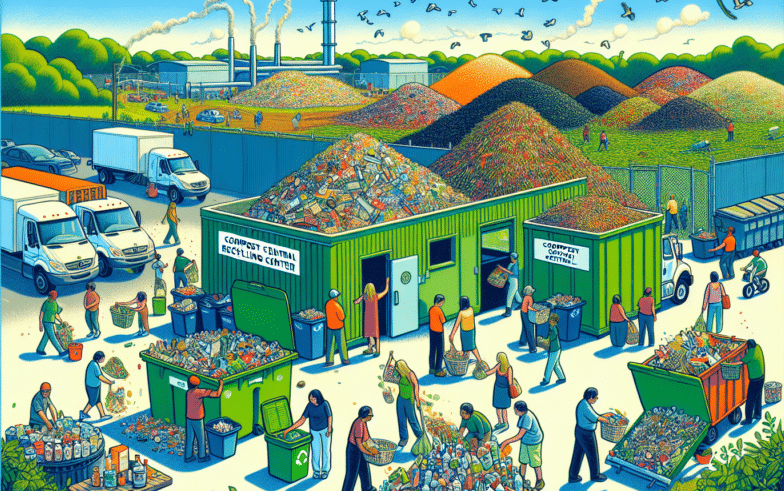
Compost Central Recycling Center stands as a testament to Mecklenburg County’s commitment to environmental sustainability. This full-service disposal and recycling facility is a cornerstone in the county’s strategy to manage waste responsibly, transforming a staggering 150,000 tons of yard waste annually into compost material. With a $2.4 million investment in a new compost facility, the center is poised to redefine the way we think about waste, shifting the focus from disposal to resource recovery.
Yard Waste Transformation
At Compost Central Recycling Center, the advanced composting method incorporates the expertise of microbiology, leveraging the natural decomposing powers of bacteria and fungi to break down organic matter like dry leaves and grass clippings. The culmination of this process is a selection of top-tier mulch and compost products that can enrich our soils with vital nutrients. To the delight of local gardeners, residents of Charlotte are even treated to free compost, a testament to Compost Central’s dedication to promoting sustainable practices.
Recyclable Material Handling
Beyond the realm of organic matter, Compost Central excels in the art of recyclable material handling. The self-service recycling centers scattered throughout Mecklenburg County stand ready to breathe new life into a vast array of materials, including plastic bottles, aluminum cans, glass bottles, cardboard, paper, and milk and juice cartons. The meticulous sorting of these recyclable materials is crucial to the sustainability cycle, ensuring that materials re-enter the production stream rather than contributing to environmental degradation. By participating in this process, residents and businesses alike become allies in the quest for a cleaner, greener planet.
Facility Features and Public Access
Accessibility and convenience are the hallmarks of Compost Central Recycling Center. With operating hours from Monday to Saturday, 7 a.m. to 4 p.m., the center is an inviting destination for all who wish to contribute to a more sustainable city. The center’s strategic location in Charlotte and generous operating hours reflect its mission to make recycling and composting a seamless part of daily life.
The Life Cycle of Your Lawn Clippings and Leaves
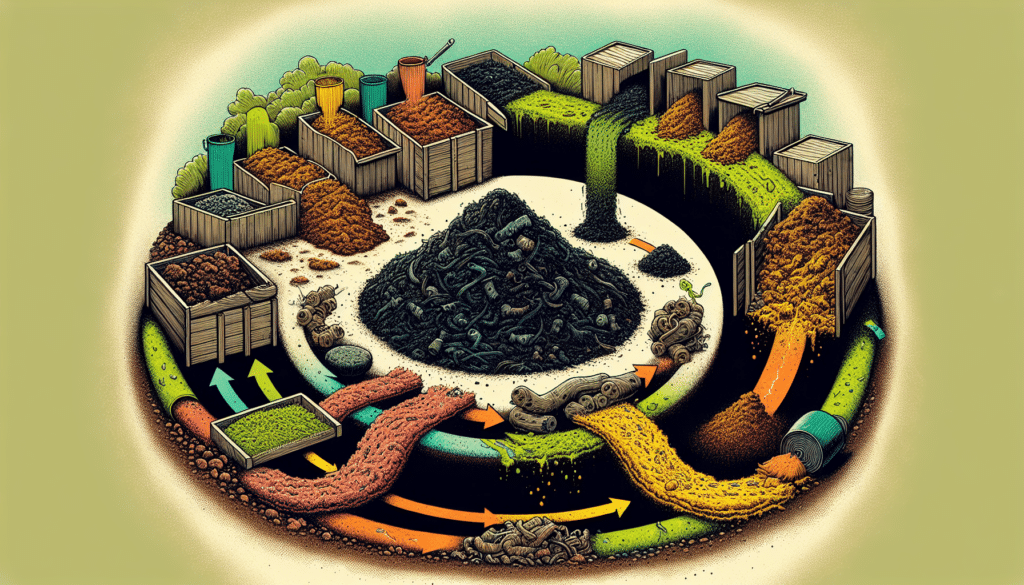
The journey from green waste to ground takes about six months, but the result is a county compost and mulch that can benefit the local landscape. As we explore the intricate stages of this process, it becomes clear that composting is more than just a method of waste reduction—it is a craft that turns the remnants of our yards into the foundations of future growth.
From Green to Ground
Composting at Compost Central begins with the blending of green and brown waste. Food scraps mingle with dead leaves and branches, transforming due to elements such as carbon, nitrogen, oxygen, and moisture. Particle size plays a pivotal role, with smaller fragments providing insulation and larger ones ensuring proper airflow and moisture distribution. The finished product, after being meticulously screened for safe use, is then ready to enrich the soil of Charlotte’s local gardens, parks, and roadways.
Quality Control Measures
Employing a technical and considerate approach, the Compost Central Recycling Center ensures that the composting process is executed with precision, maintaining the ideal environment for organic decomposition. Temperature control is key, with the compost piles kept within a specific range to encourage rapid breakdown while eliminating pathogens and unwanted weed growth.
Pick-Up or Delivery?
With no delivery services offered, those wishing to utilize the county compost or mulch must visit designated recycling centers to collect them.
Sustainable Practices for Mecklenburg County Residents
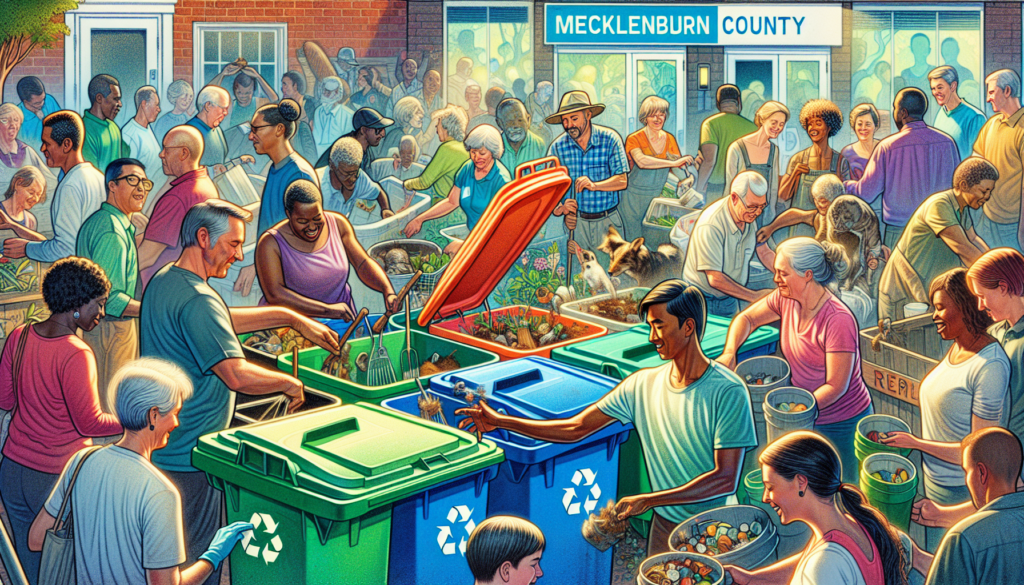
The residents of Mecklenburg County are the backbone of the region’s sustainable waste management success. Their daily choices play a pivotal role in reducing landfill waste and fostering a healthier environment. Some of these choices include composting yard waste at home, sorting home recyclables, and rinsing containers before disposing of them. By participating in local sustainability efforts and utilizing composting facilities, residents are not only adhering to guidelines but also contributing to the vision of a greener future.
What Can You Bring?
Navigating the world of sustainable waste disposal is made easy for the residents of Mecklenburg County, thanks to the comprehensive services offered by the full-service drop-off centers. From recyclables and yard waste to bulky and electronic items, these facilities welcome a variety of materials. The self-service recycling centers complement this effort by accepting everyday items such as cardboard and plastic bottles, ensuring that the journey of these materials continues beyond the bin. Moreover, the county provided dedicated events for the disposal of household hazardous waste, such as batteries and heavy appliances.
Do’s and Don’ts of Recycling
Effective recycling requires adherence to a set of simple yet crucial practices. Here are some guidelines to follow:
- Containers should be devoid of any food or liquid residue before being tossed into the recycling bin to prevent contamination of other materials.
- Plastic bottles, in particular, need to be empty and cap-free to ensure they are processed correctly.
- Plastic bags are a common contaminant and must be kept out of curbside recycling bins.
- Food containers need a quick rinse to remove any lingering debris, thus maintaining the purity of the recycling stream.
By following these guidelines, residents can contribute to a more efficient recycling system, one that maximizes the potential of every recyclable and minimizes waste.
Encouraging Community Participation
Community involvement is the cornerstone of Charlotte’s sustainability mission. Initiatives like Crown Town Compost, in partnership with the Innovation Barn, are leading the charge toward a waste-free city by 2050. The city’s municipal composting programs not only provide residents with compost but also offer convenient options for curbside collection or drop-off, making it easier for everyone to participate in the composting movement. It’s through these collaborative efforts that Charlotte is cultivating a culture of environmental consciousness, one that encourages each member of the community to take an active role in the pursuit of a sustainable future.
Innovative Solutions for Businesses and Construction Sites
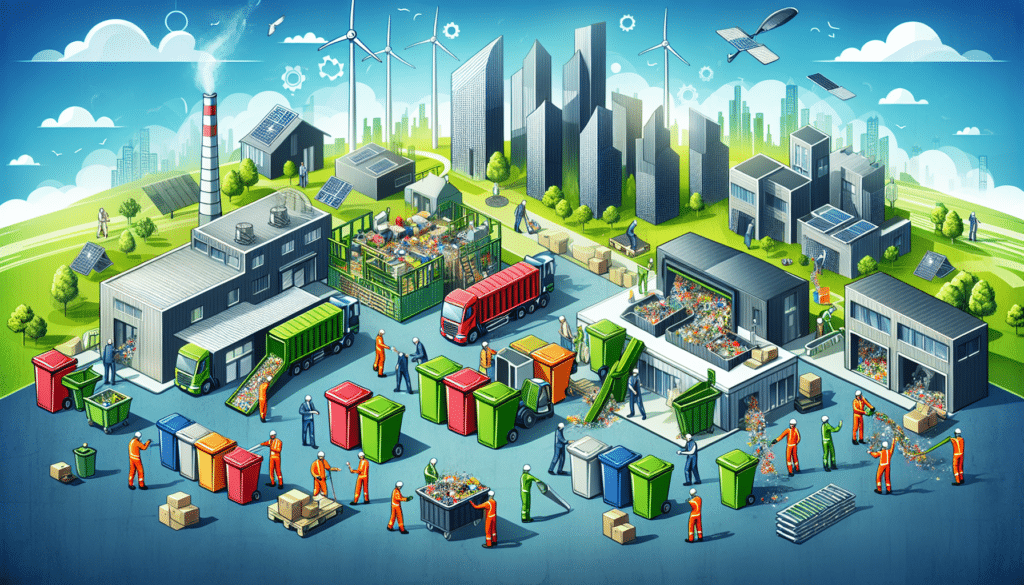
Businesses and construction sites in Charlotte have unique waste management needs, and Compost Central Recycling Center is well-equipped to provide innovative solutions tailored to these sectors. With a variety of container sizes available for lease, the center can accommodate the volume demands of any project, big or small. Expert staff are on hand to assist in determining the most suitable waste management plan, ensuring that the specific requirements of each business or construction site are met with precision.
Business Recycling Programs
Businesses in Charlotte benefit from recycling programs that not only support effective waste management but also contribute to reducing environmental impact. Through customized assistance and events, businesses can safely dispose of hazardous waste, ensuring that these materials are handled with the utmost care. Guidance from the North Carolina Department of Environmental Quality is available to assist businesses with their hazardous waste disposal, providing a resource for best practices and compliance.
Construction Waste Management
In the realm of construction, waste management presents its own set of challenges, which Charlotte addresses with specialized recycling solutions. These solutions are designed to divert construction and demolition materials from landfills, promoting a more sustainable approach to building and renovation. Mecklenburg County’s recycling centers can handle up to 10 cubic yard loads of a wide range of debris, providing a centralized location for disposal and recycling. For larger debris loads, the Foxhole Landfill serves as the designated facility, ensuring that even the most substantial waste is managed responsibly. Collaboration between UNC Charlotte’s Office of Waste Reduction & Recycling and construction managers exemplifies the concerted effort to monitor, report, and ultimately reduce the waste footprint of large-scale projects.
Partnering with Compost Central
Compost Central’s search for partnerships extends to the business sector, with a keen interest in collaborating with delivery companies to distribute mulch and compost throughout the area. These partnerships are crucial in extending the reach of sustainable products and services, ensuring that the benefits of composting and recycling are widely accessible.
Recycling Center Amenities and Accessibility
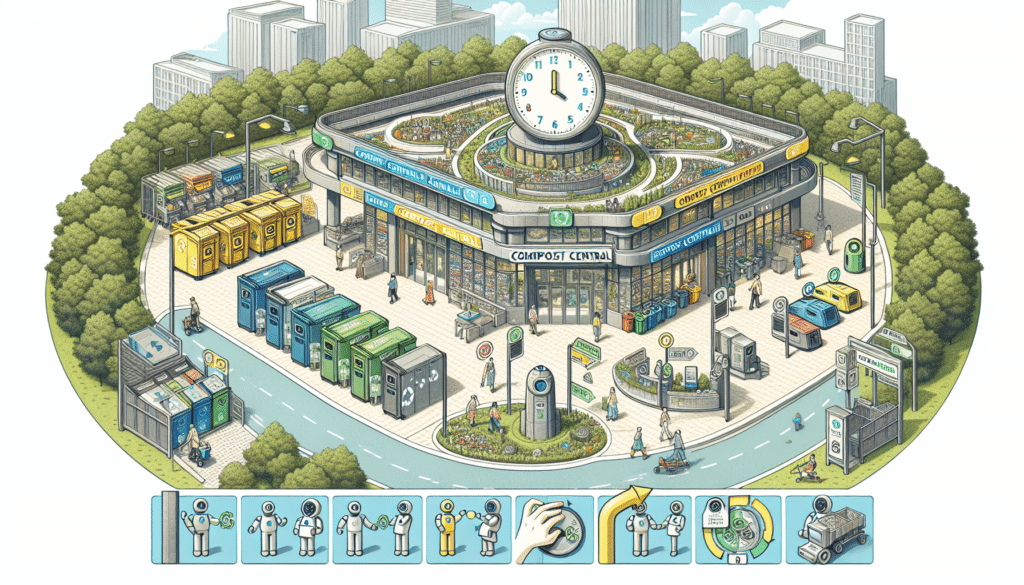
Compost Central Recycling Center acts as a gateway to environmental responsibility, designed with the user in mind. Offering an array of user-friendly services, the center ensures that residents of Mecklenburg County have the support they need to manage waste effectively and sustainably. With operating hours extending through six days of the week, the center provides ample opportunity for residents to participate in recycling activities at their convenience.
Convenient Locations Across the County
Mecklenburg County’s landscape is dotted with full-service drop-off centers and self-service recycling centers. From the bustling streets of Charlotte to the serene suburbs, these facilities cater to the diverse needs of the county’s residents, accepting a broad spectrum of materials including yard waste, glass bottles, and jars. With the added feature of specialized recycling sites, such as The Innovation Barn, the county’s infrastructure exemplifies the ease and efficiency with which sustainable practices can be integrated into daily life.
Operating Hours and Special Services
The full-service drop-off centers’ doors open promptly at 7 a.m. and close at the day’s end, 4 p.m., from Monday to Saturday. Special services, such as hazardous waste collection days, are interspersed throughout the year, offering safe and easy disposal options for items that require special handling. This level of service showcases the center’s proactive approach to waste management, ensuring that all types of waste are catered for with due diligence and care.
Payment Options and Fees
Understanding the cost of sustainability is a straightforward affair at Compost Central Recycling Center. While payment options and fees for services may vary, residents and businesses can quickly obtain this information with a simple email inquiry to the county government. Whether it’s cash, card, or other forms of payment, the center’s fee booth is equipped to handle transactions smoothly, enabling customers to focus on the task of recycling rather than on the logistics of payment.
Summary
As we wrap-up our exploration of the Compost Central Recycling Center, it’s clear that the facility is more than a mere collection point for waste. The center’s seamless integration of recycling, composting, and community engagement makes it a model for sustainable waste management, showing that each of us holds the power to make a positive environmental impact. As residents and businesses of Charlotte, we are all stewards of the environment, and it’s through facilities like Compost Central Recycling Center that we can turn our collective vision for a sustainable future into a reality.
Frequently Asked Questions
How can I obtain free compost from Compost Central?
You can obtain free compost from Compost Central by visiting the designated recycling centers in Charlotte and participating in the self-service pick-up process.
Where is Compost Central located, and what are its operating hours?
Compost Central Recycling Center is located in Charlotte, NC,and is open from Monday to Saturday, starting at 7 a.m. and closing at 4 p.m., with extended hours on Saturdays for added convenience.
Can I bring my plastic bags to the recycling center?
No, plastic bags should not be placed in curbside recycling bins to prevent contamination. Instead, bring them to specific collection points or retail stores that offer recycling for plastic bags.
What types of materials can I dispose of at the full-service drop-off centers?
You can dispose of a wide range of materials at the full-service drop-off centers in Mecklenburg County, including recyclable materials, yard waste, bulky waste, electronic waste, and household hazardous waste.
Are there any recycling solutions for construction and demolition materials?
Yes, Charlotte offers specialized recycling solutions for construction and demolition materials, including programs and centers to manage and recycle the debris.






































































